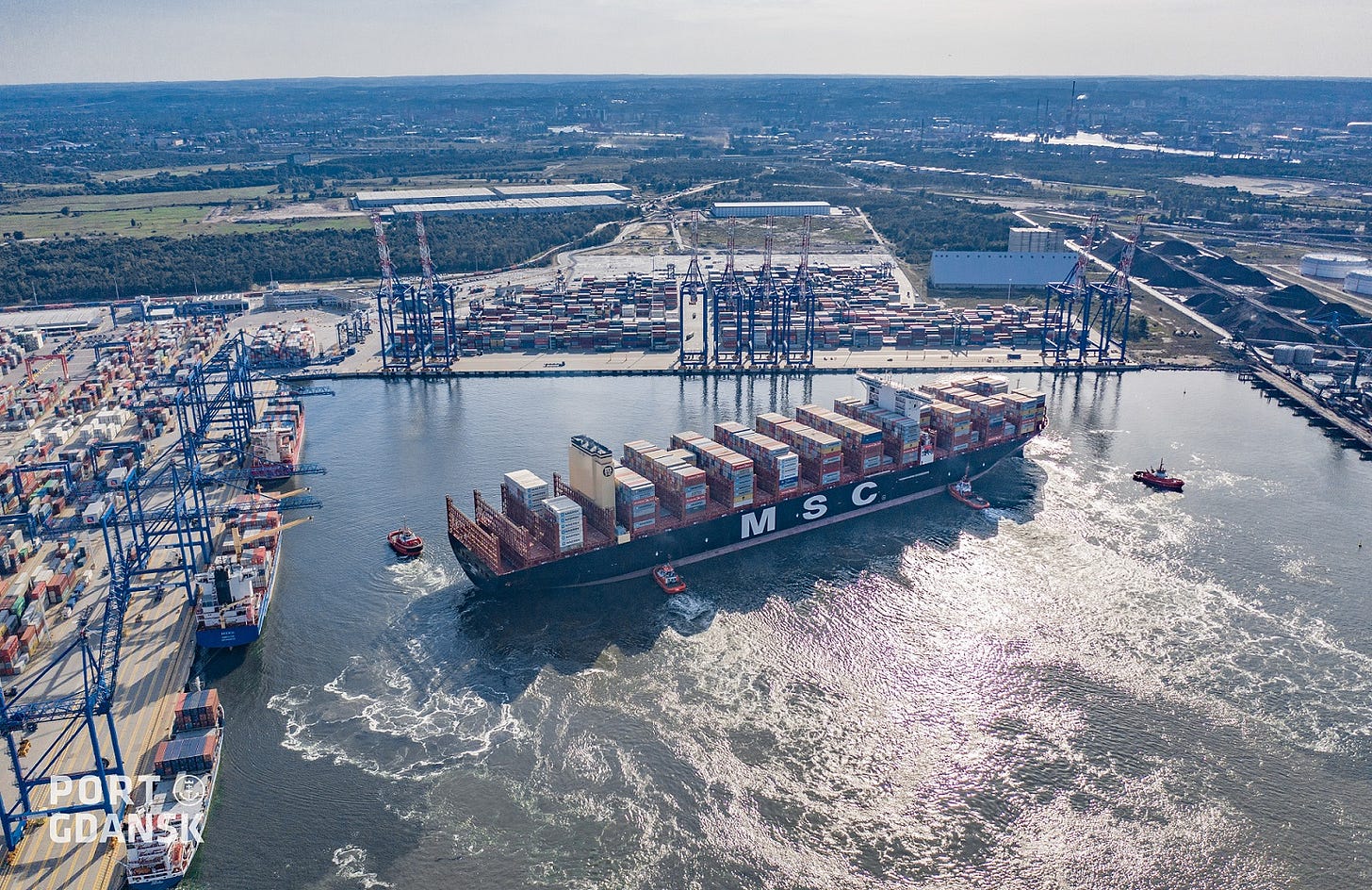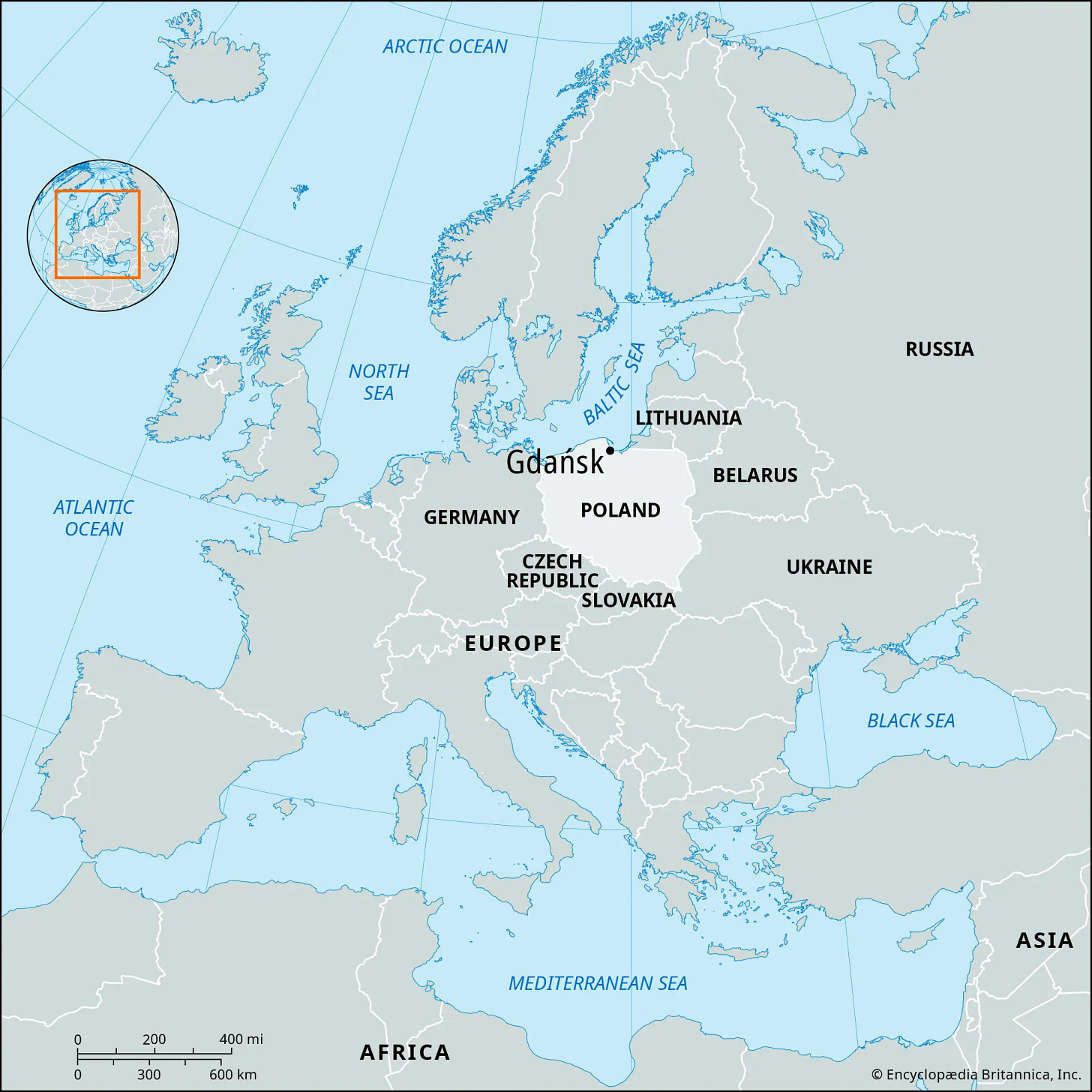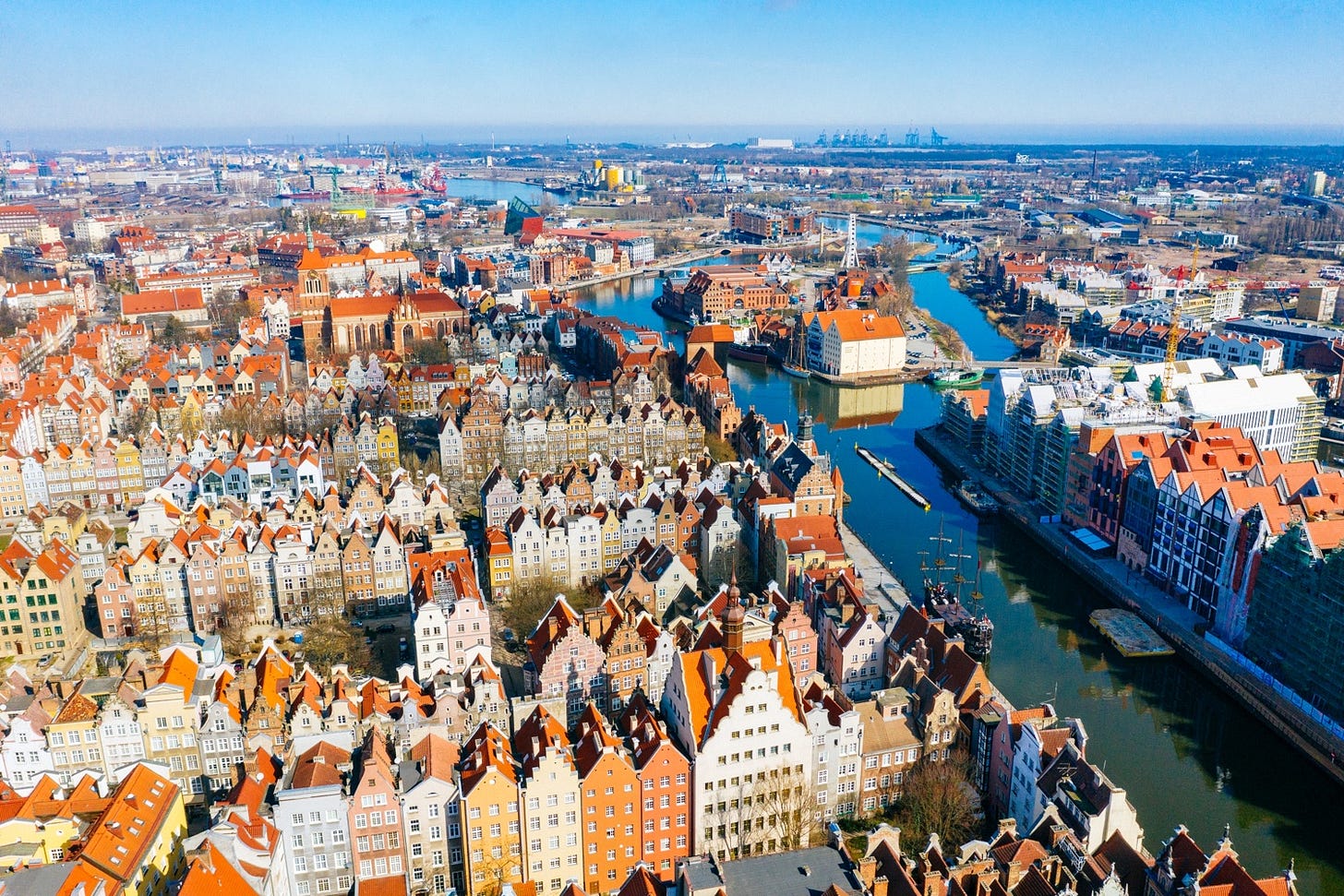The City…
The port city of Gdańsk can be found on the coast of Northern Poland, located at the mouth of the Motława River, flowing into the Baltic Sea. The city has a vastly complex history featuring periods of German rule, Polish rule and self-determination. It has functioned as a major seaport since the Middle Ages. In 1361, it was incorporated into the Hanseatic League (a network of well-connected and wealthy towns and cities from the Netherlands, Poland, Germany, and Russia), handling trade throughout the continent.
Gdańsk (formerly Danzig) served as a key city in the build-up to and during the Second World War. The city was given ‘Free City’ status from the Treaty of Versailles meaning that instead of being given to the newly created country of Poland, Danzig was turned over to the League of Nations for administration.
France and the United States supported the idea that Danzig should be assigned fully to Poland but this was vehemently opposed by Britain and Germany. In the end, the compromise of stripping the city from Germany, and having it simply be a free city was agreed upon.

Poland wanted to obtain Danzig as it was a large port city situated geographically at an important strategic point in Europe. The only problem was that Danzig’s population was largely German. In 1929, the census counted the city’s population as being 95% German.
In 1938, the seemingly unstoppable Nazi annexation machine set its sights on the Free City of Danzig. Germany contended that the city should be reunified with the Reich, citing historical and ethnic arguments in support of its case. This did not sit well with Poland who saw Danzig as a future and inevitable part of their plans going forward.
As we know, World War II went on to be the bloodiest war in human history, the build-up was largely based on the city of Danzig. After the war, the city (renamed Gdańsk) returned to Poland, under the rule of the Soviet Union.
In the 1980s, Gdańsk was the birthplace of the Solidarity movement, which helped precipitate the collapse of the Eastern Bloc, the fall of the Berlin Wall and the dissolution of the Warsaw Pact. In July 1980, facing an economic crisis, Poland’s government raised the price of food and other goods, while restricting the growth of wages. These price increases made it difficult for many Poles to afford basic necessities, and so a wave of strikes swept the country.
Keep reading with a 7-day free trial
Subscribe to Beth's Football Stack to keep reading this post and get 7 days of free access to the full post archives.






